How to get an official ‘natural’ product in New Zealand
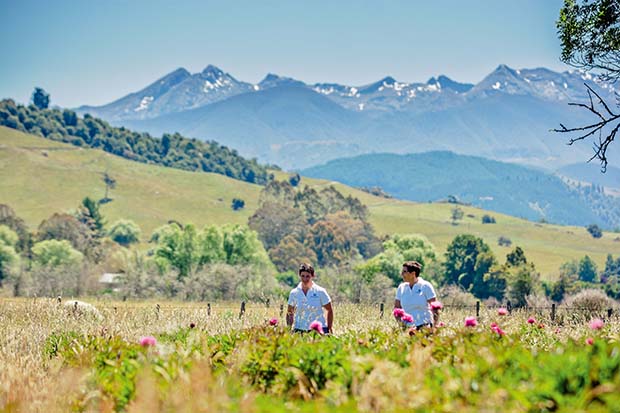
Dove Valley Peony farm is nestled at the base of the Kahurangi Ranges, west of Nelson. Growers Dot and Georgia do not have organic certification but have been growing organically for 18 months.
Launching a natural product comes with unique compliance and marketing challenges. The women behind Dove River Peonies share their tips for starting a natural product business in New Zealand.
When Nelson couple Georgia Richards and Dot Kettle discovered peony root cured their sons’ eczema, their natural skincare business Dove River Peonies bloomed.
The key ingredient in the peony root is paeoniflorin, now becoming well known for its anti-bacterial and anti-inflammatory properties thanks to scientific research backing up what traditional herbalists in China and Europe have known for centuries. While feedback on their range of soaps, shampoos, and creams, launching a natural product business has been challenging.
READ MORE ABOUT DOVE RIVER PEONIES HERE
The benefits of white peony root are still unknown to a lot of people in New Zealand and around the world. That gave Dot and Georgia two challenges: creating a buzz around their product and educating customers on the benefits of paeoniflorin.
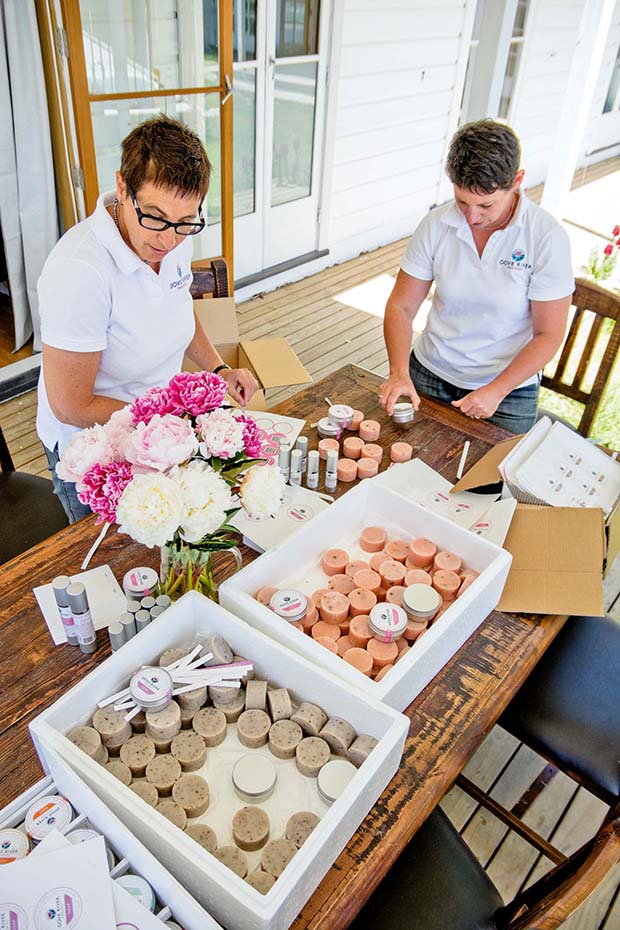
Packing products for clients in New Zealand and around the world.
4 WAYS TO MARKET A NATURAL PRODUCT
THE LOCAL MARKET
The couple chose to first sell directly to the public, starting with Nelson’s Saturday market where they got to meet customers face-to-face and hear their feedback. The bonus was they got to show their products to the high number of international tourists who pass through.
Dot says it was important to hear what people thought so they could improve the creams and soaps, and how they were selling it.
“We got advice very early on to conquer Nelson, then New Zealand, then the world, so that’s our approach.”
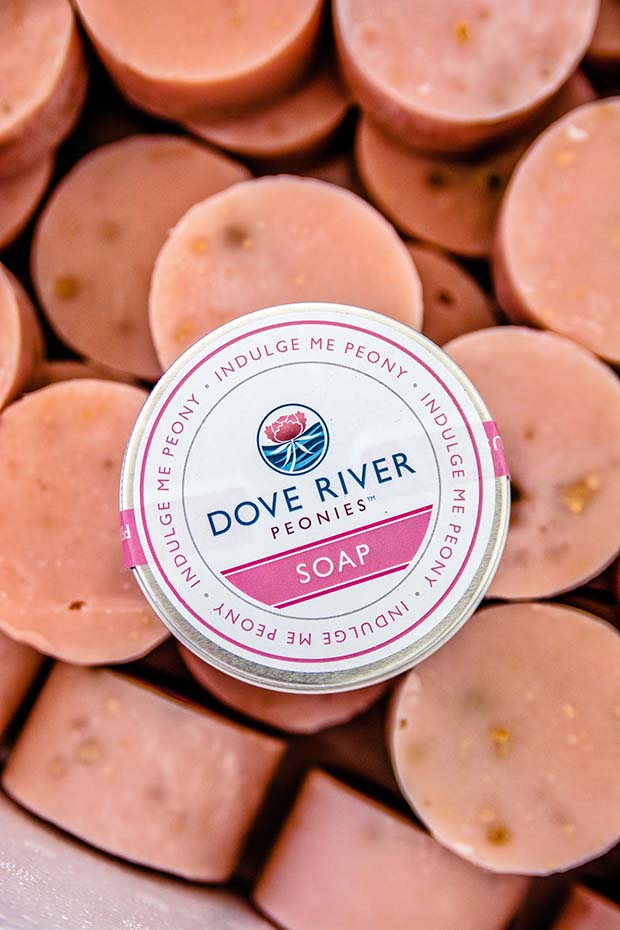
A ‘TRY IT’ OPTION FOR NEW CUSTOMERS
Dot and Georgia knew from years of personal experience that you can spend a lot of money trying the next new eczema treatment only to find it doesn’t work for you. They wanted their potential customers to have the option of trying it before buying a standard-sized bottle.
“That’s why we’ve done one of the quite small sizes of 20ml,” says Dot. “You can buy some, try it and see if it does work because if it doesn’t you need to keep trying something until you find a product that works – that’s certainly been our journey, our experience.”
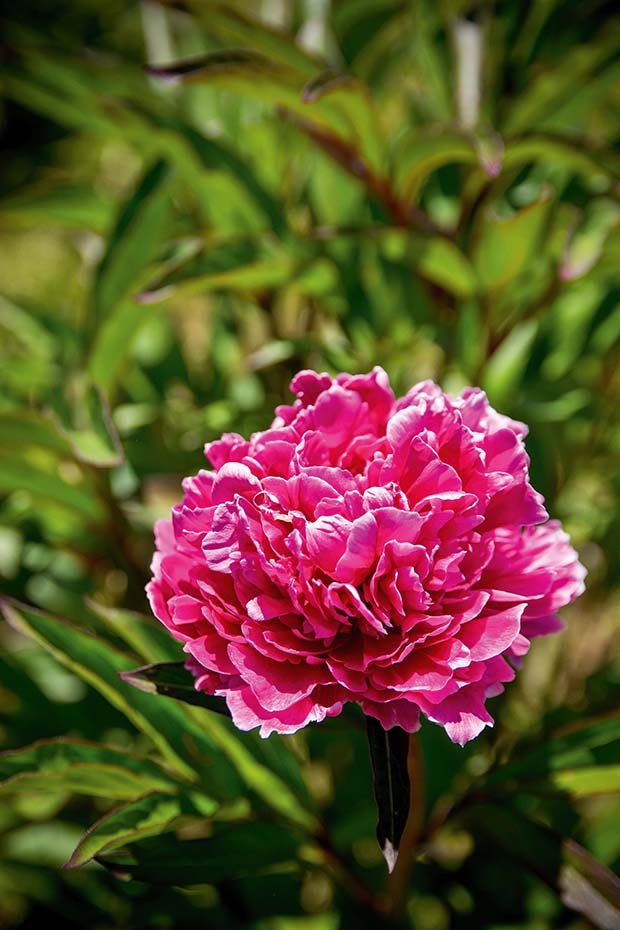
THE ONLINE COMMUNITY
Their website has been an opportunity to educate people on the benefits of paeoniflorin. In their years of hunting for ways to help their boys, Dot and Georgia have become part of online forums and message boards and they know group members with eczema and other skin conditions like psoriasis pass on information about products that work for them. They’ve launched their products on Facebook and customers can now buy them through Amazon.
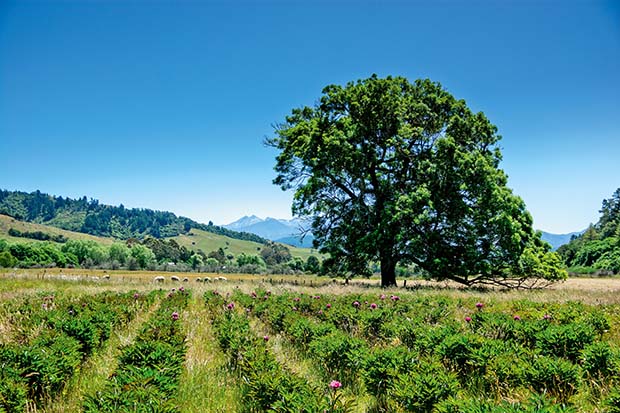
THE COMPETITION OPTION
Their products only went on sale for the first time in October 2014 but Dot and Georgia were keen to know if they were on the right track. They entered the ANZ Flying Start Business Plan competition and won their regional final. They also won a special merit award in the Enterprising Rural Women Awards, going along to the annual conference and talking about their product.
“What was amazing was the number of women at that conference who came up to us afterward,” says Dot. “They were wanting to buy the product and then took it home to rural communities around the country and started sharing it and spreading the word and using it and that’s been quite a snowballing marketing approach as well.”
HOW TO GET AN OFFICIAL ‘NATURAL’ PRODUCT
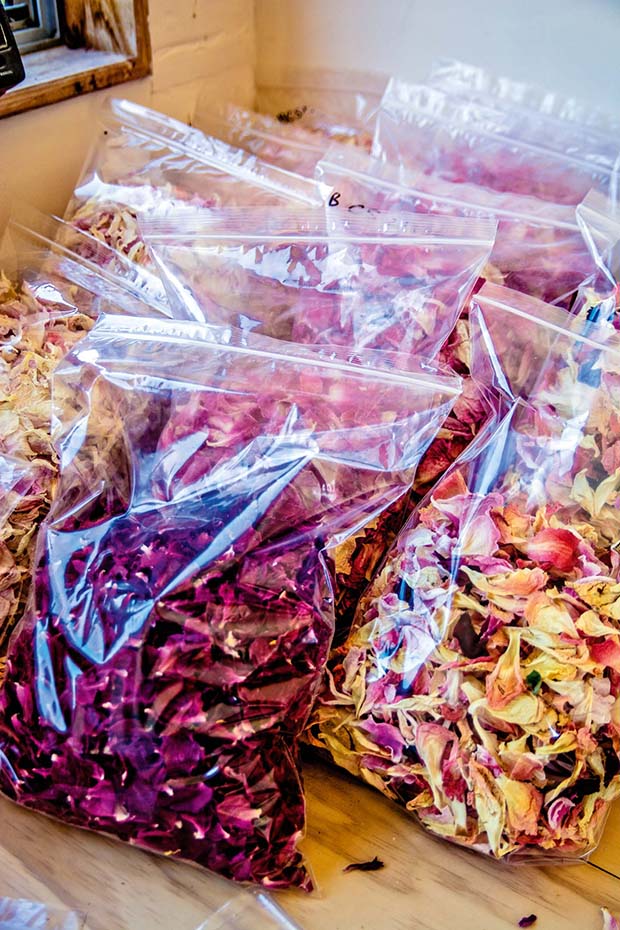
To be able to make the claim that a product is certified as ‘natural’ you must adhere to a list of protocols and pay for a certification of your actions. The high cost of that has prevented Dot and Georgia from getting the particular paperwork while they are still a small business. However, their product does meet the certification protocols.
Their manufacturer, Alaron Products, is GMP-certified (Good Manufacturing Processes) which means its ingredients are consistently safe, effective, and of acceptable quality.
There is also the therapeutic approval process which outlines what health claims you can (and can’t) say about your product on labels or in advertising material. The process is called TAPS (Therapeutic Advertising Pre-vetting System) and thanks to all of Georgia’s careful research into the scientific claims for paeoniflorin, they have passed it.
Then there’s organic certification for the roots which means the couple has to document everything they do out in the paddock, but they wanted their customers to have the best reassurance they could offer so the roots are also tested and certified to show they are free of insecticides and herbicides.
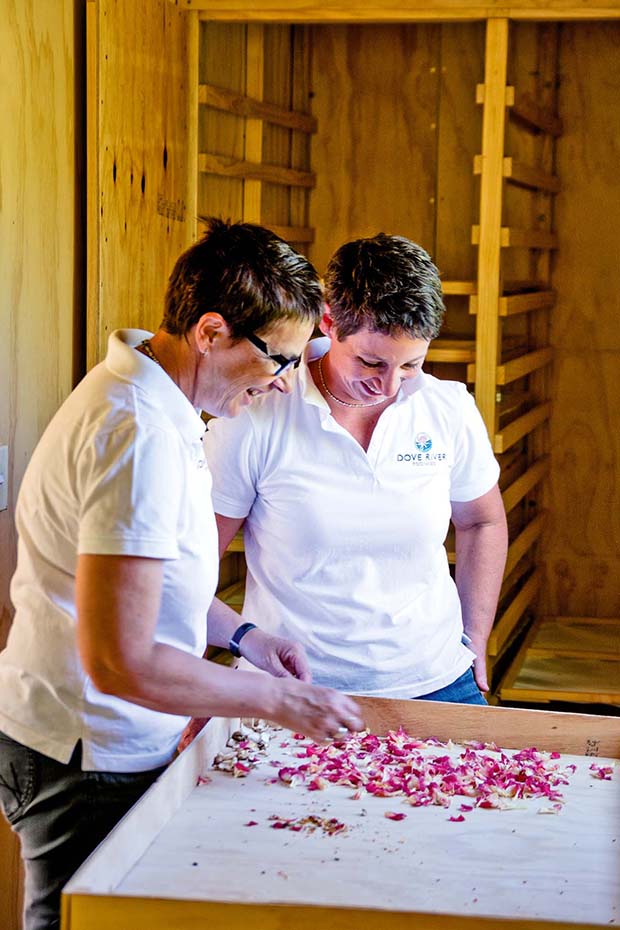
Dot and Georgia use an organic dryer to dry the peony root and petals.
“The interesting thing about the regulatory environment in New Zealand is it’s a bit of an in-between thing,” says Dot. “You don’t have to go through that TAPS process to sell your product in New Zealand… but we’ve chosen to do that to provide that guarantee of effectiveness of our product. You don’t have to have gone through that testing of the root but we’ve chosen to do that so people can have confidence in the purity and traceability of the peony we use in our products.”
A bill that would cover natural health products was scrapped in 2017 but would have required natural products to be registered and to contain only permitted ingredients.
Read the current rules on natural health products
“That was going to regulate the environment a lot more and restrict what people can sell, and you would have to have permitted ingredients and permitted health claims,” says Dot.
“Paeoniflorin is on the list… so we’ve made sure that our business is able to cope in a much more regulated environment.”
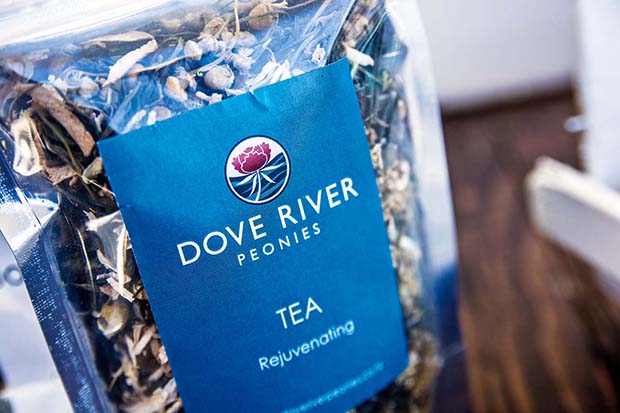
But having all the official ticks is still not as high as the standard they hold themselves to says Georgia.
“Ultimately, I’m going to put this on my kids’ skin so if I’m expecting other people to do that I need to be able to hand-on-heart say that I know it doesn’t have any nasties in it that could potentially hurt them, and that it will heal.”


